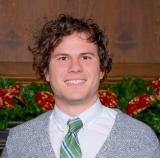On this page:
Webinar Description
June 2, 2020, from 1:00 - 2:00 p.m. ET
This webinar will help those seeking to apply for the Supporting Anaerobic Digestion (AD) in Communities request for applications being offered by EPA this year, which total up to $3,000,000. EPA is seeking applications that will accelerate the development of new or enhance/increase existing AD capacity and infrastructure in the United States. Applications must achieve one or more of the following objectives:
- Support state, tribal and/or local government programs that seek to use AD to increase their organic waste diversion rates or support other sustainability goals;
- Demonstrate and/or implement solutions and/or approaches for increasing AD utilization that can be replicated by other communities, governments, or other entities; or
- Establish new or expand existing partnerships (public/private partnerships) that result in development of AD capacity.
The webinar will review the funding opportunity, key sections of the application, and the application process. Entities that are eligible to apply include:
- States (including the District of Columbia, Puerto Rico, Virgin Islands, Guam, American Samoa, and Northern Mariana Islands), local, Tribal, interstate, and intrastate government agencies and instrumentalities; and
- Non-profit organizations that are not 501(c)(4) organizations that lobby, including non-profit educational institutions and non-profit hospitals. Individuals and for-profit organizations are not eligible.
![]() Video: Supporting Anaerobic Digestion in Communities, Request for Applications Exit
Video: Supporting Anaerobic Digestion in Communities, Request for Applications Exit
Speaker
Chris Carusiello has been with the EPA for nearly five years where he is a member of the Sustainable Materials Management Program working on the built environment and the sustainable management of food areas. He has worked on several projects including industrial materials measurement, food waste measurement, and scrap tires issues. Previously he was an education volunteer with the Peace Corps in Sierra Leone and a research assistant at the University of Florida, where he earned a bachelor's degree in environmental sciences and engineering.

